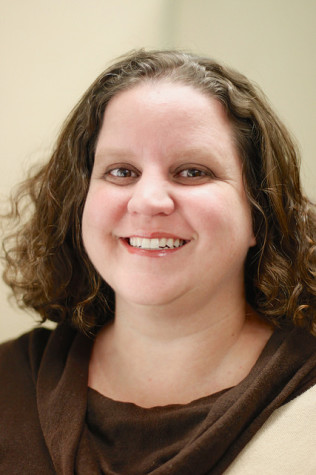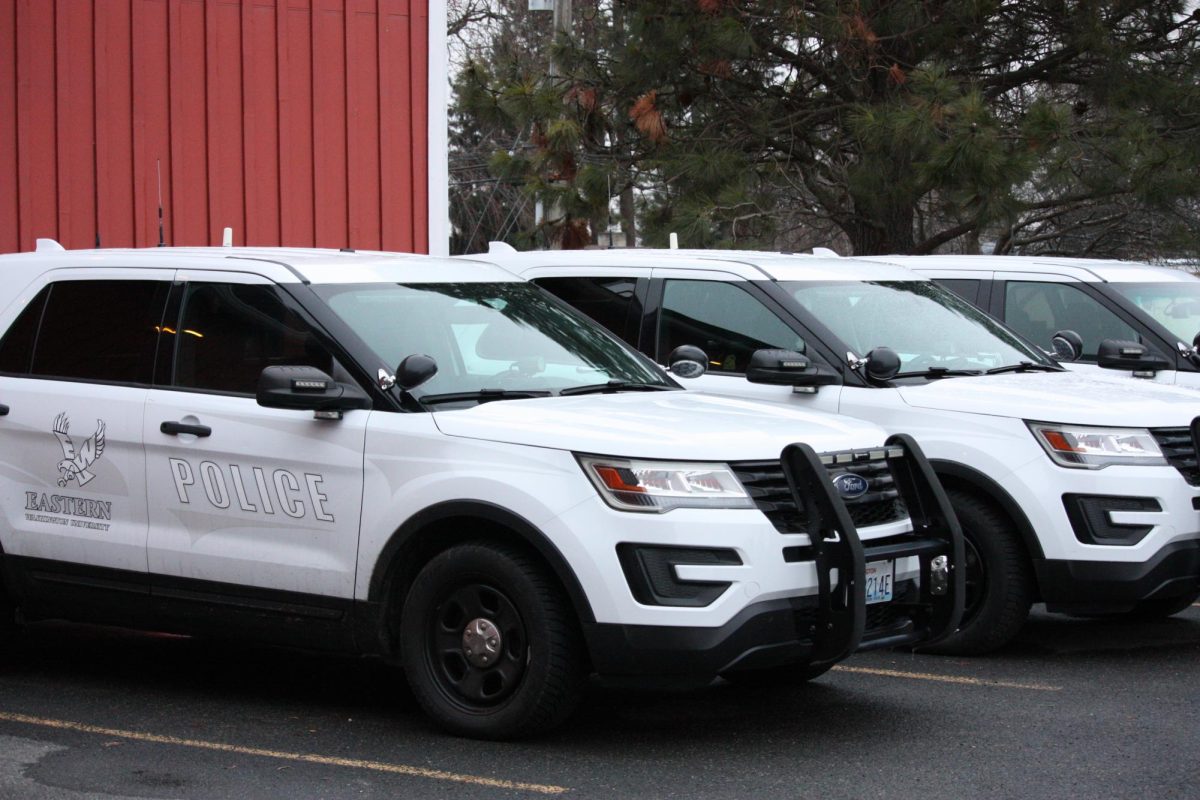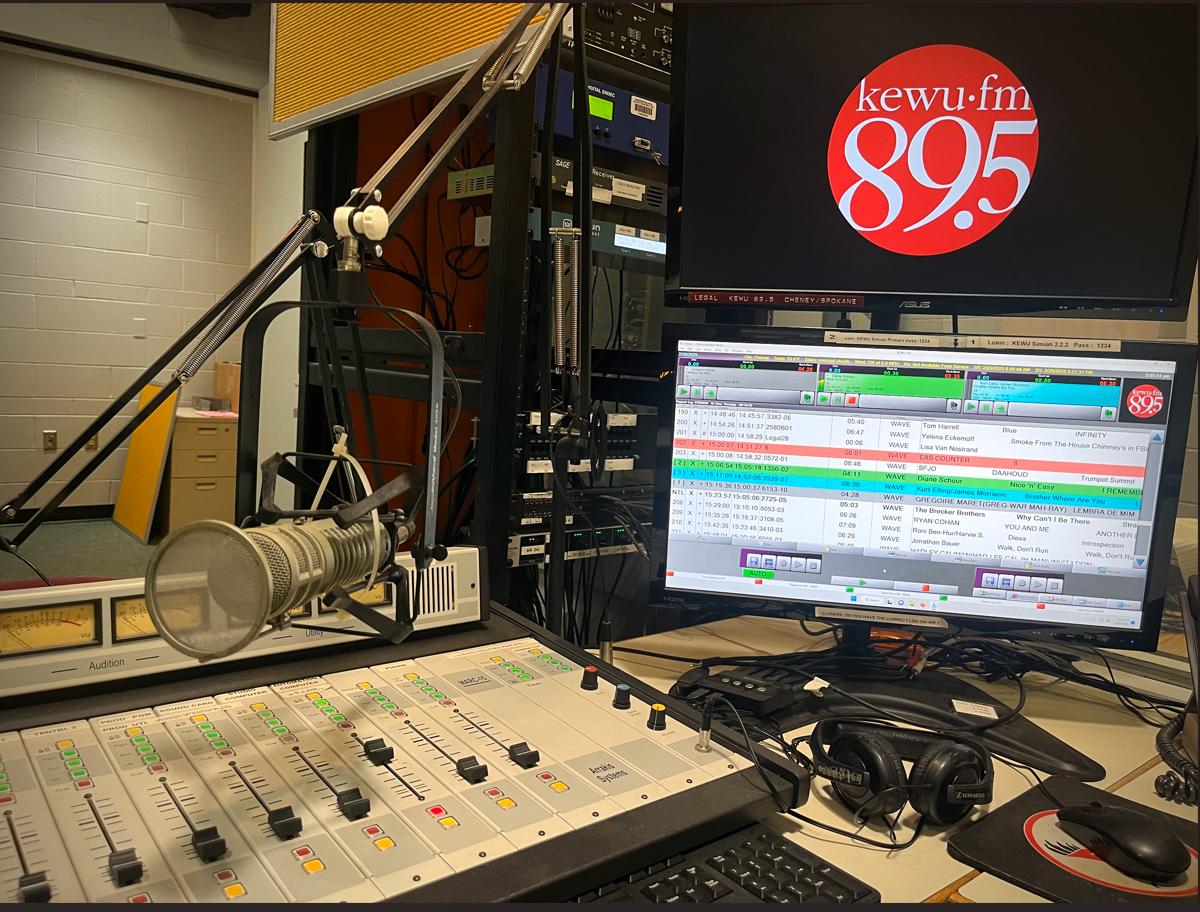Downward voting trend reverses in last two elections
May 1, 2013

Campaign posters litter the campus persuading students to vote one way or another.
Student voting turnout at ASEWU elections has fallen every year since a high point in 2007, but the 2012 election, followed by a strong turnout at this year’s primary on April 23, marks a major turnaround.
The 2010 election got out only 7 percent of the vote from eligible students, or 699 votes. This rose incrementally to 7.05 percent in the 2011 election.
A bigger increase showed in 2012, and this year’s primary ended with a jump to 2,136 votes.
According to Connor Gregg, ASEWU director of elections, each year, the director of elections has a $10,000 budget to run the entire election: advertising, events, the voter guide, voting equipment, vote counting and everything else that goes into an election.
The first $5,000 of the budget for this year went to secure the Macklemore concert.
Gregg said that about $2,000 of the remaining budget has been spent so far on expenses such as the voter guides and events to engage candidates with students, including the URC meet-and-greet, the election barbecue and the upcoming debates on May 1 and 2.
“This was all money that was going to be spent for elections whether there was a concert or not,” said Travis Hughes, who was elections director in the fall and has now moved into a student services representative position.
Hughes was the one who conceived the idea of bringing Macklemore to the Eastern campus and tying the concert to the election, and he has continued to work with Gregg on the project.
According to Gregg and Hughes, the buzz generated by the Macklemore concert was worth the money not spent on conventional election advertising because word of mouth and social networking about the concert is doing the heavy lifting of advertising.
Hughes launched the project by writing a proposal asking for funds out of the services and activities fee that students are charged. He pitched the idea to the services and activities fee committee, which voted unanimously to approve a range of funding that would allow negotiations with Macklemore.
“It hasn’t been tapped for years,” said Hughes. “It sits there and has hundreds of thousands of dollars unused by our university, [money] that students are getting charged but no one is utilizing.”
“We spent student funds to make this happen. [So] we want to make sure that it’s only available to Eastern students,” Hughes said. He said that alumni are not being charged the S&A fee, which is the money being used to fund the concert.
Gregg and Hughes expect the Macklemore concert to sell out on voters alone.
Hughes said, “Maybe we did incentivize the voting. But we feel that’s better than not voting at all. … When I walked around campus as director of elections [on the day of the primary], I saw students involved. I saw students reading the voter pamphlets. I saw students really investing themselves in the elections. I had [15 to] 20 minute conversations about the election process with students.
“That’s the thing to take from this. The way I try to address the Macklemore concert is it’s not an incentive for students to go and just throw in a vote. It’s a thank you. It’s an honor that we’re giving to students that do apply themselves to the election process.”
“I don’t think it’s the wrong way to go about it,” said Hughes. “I don’t see how it’s any different than if you’re going to give out promotions at sporting events to get people to show up. … We’re not paying people to vote. We’re not buying votes. You can vote for whoever you want. We’re just saying, ‘Will you please participate and be involved in this university? And if you do, here’s our thank you to you.’”
Gregg said that he views the concert buzz as amplifying the election process, not tainting it.
Matt Brown, manager of the data center, wrote the election software program that is currently used. According to Brown, ASEWU was having to spend about $3,000 per round of voting, or $6,000 a year, on an outside provider.
Brown told them he could write a program for half that total and then they would not have the recurring expense. They hired him.
“So they’ve saved at least $24,000 just in the last four years,” Brown said. “Plus we see a lot higher voter turnout with the online election than with the paper ballots because students can do it from their smartphones or the computer lab.”
Historically, general elections at EWU have brought out even more voters than the primary election.







